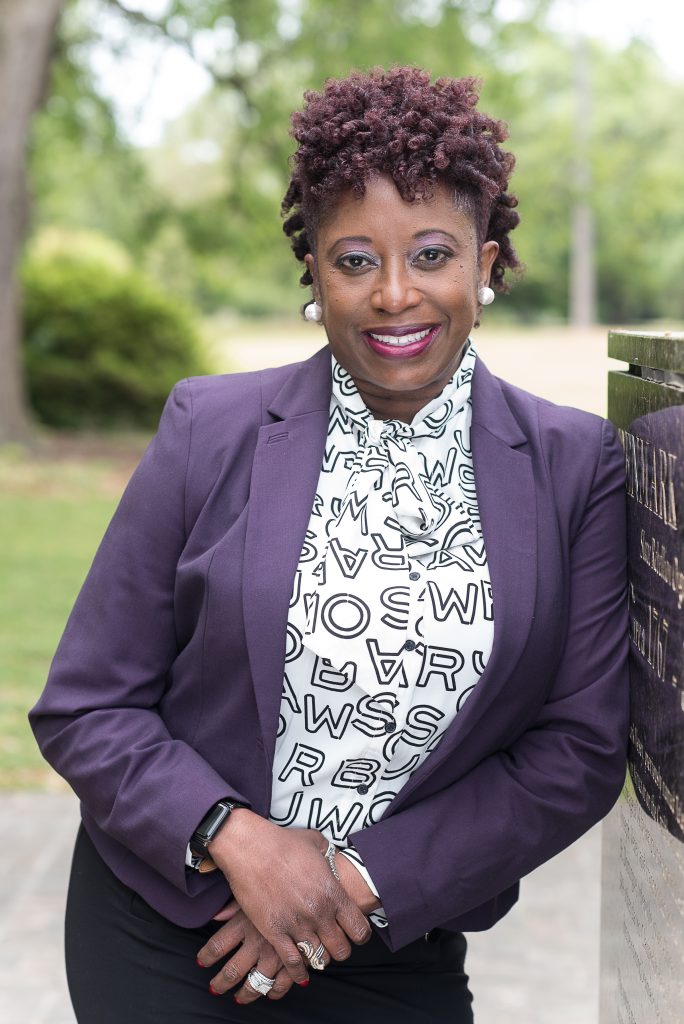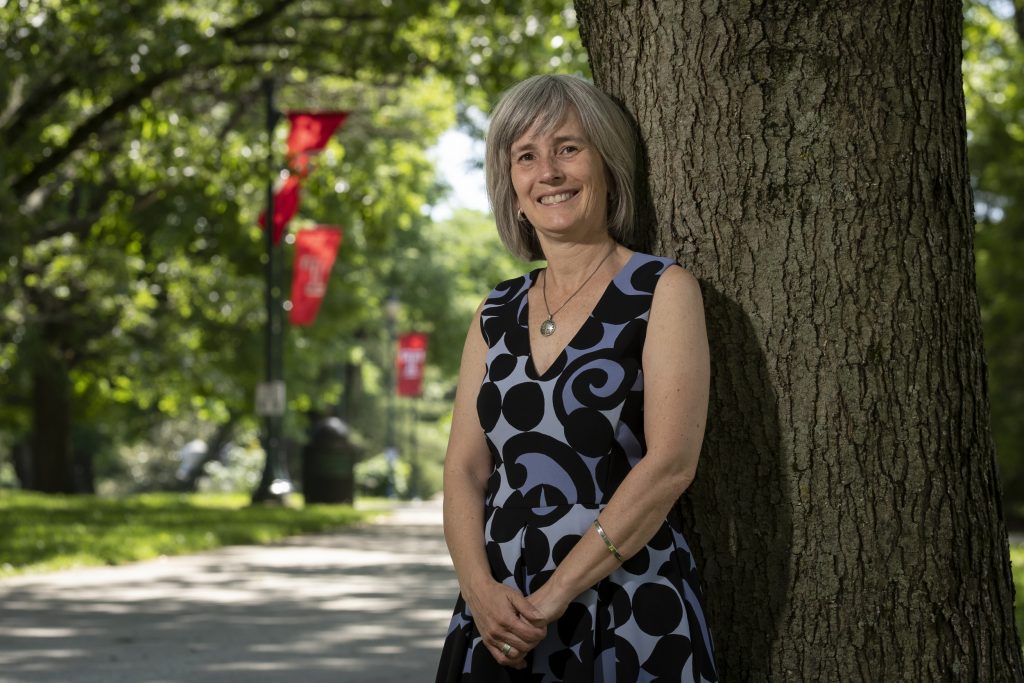Progress is the force that drives Shawn S. Edwards, DBA ’20, in her desire to help open pathways to diversity at the highest levels of nonprofit organizations.
“I often come across individuals who want to add diversity to their boards,” Edwards says. “They are not sure where to start and they’re not sure of the right process of how to do that.
“For me, I could put my hands on plenty of young people, young professionals, and plenty of racial minorities, whether they are African American or Latina/Latino, and for whatever reason, these leaders, majority-white male professionals, were having difficulty doing that.”
Recognizing that disconnect, Edwards identified the causes in her dissertation, Nonprofit Board Governance: Barriers to Millennial and Racial Minority Diversity in Board Service.

“I wanted to understand what was happening in nonprofit organizations that was creating a barrier to younger professionals and racial minorities in participating at that leadership level,” she says.
Some of those barriers have eased since Edwards began her research. She attributes that shift to the increase in activism and movements across the country that brought diversity and inclusion into the spotlight.
“There’s more diversity being added to corporate boards and nonprofit boards,” she says. “Folks or businesses are really beginning to pay attention to the diversity—or the lack thereof—within their leadership ranks. So they are looking at it from a board perspective and from an employee perspective.”
But there is still much work to be done and understanding the value that diversity brings to a board is fundamental to making the progress Edwards seeks.
“When you bring diverse individuals together, you know, we’ve got different backgrounds, we’ve got different experiences, we have different skill sets,” she says. “We bring all those things together, you kind of bring a wholeness to the nonprofit board and that, in turn, gives the organization a boost in what they’re providing to the community.”
Edwards says boards need to avoid being performative and move away from a “we are here to save you” stance to a place where collaboration drives the conversation to a much deeper level focused on the mission.
The barriers to entering into a role at a nonprofit board are not always complex.
“The data showed that opportunity and expertise or experience was one (barrier),” she says. “Folks weren’t aware of the opportunity that they have to serve on boards because nonprofit boards oftentimes don’t do a very good job of making it known.”
That, Edwards says, is what she calls “the gap of intentional engagement.”
“If you’re going to your existing board members who are majority white, majority male, the likelihood that you’re going to continue to breed the same is high.
“We have lots of opportunities for networking, there are business luncheons and coffee with so-and-so, and breakfasts and all sorts of opportunities to connect and engage and meet different people.
“What I’ve found, what the data showed, was that oftentimes when these opportunities occur, people talk to the people that they know. Or if they’re not speaking or connecting or reengaging with the people that they know, they’re engaging with other people who share some visual commonality.”
Intentional engagement really focuses on how a person networks and engages and with whom they engage.
“What intentional engagement says is not only do you connect, but you connect for further connection and further engagement,” Edwards says. “So you’re not just stopping there and shaking hands and passing a business card, you’re following up with that individual and you’re learning more about them. You’re learning how you can mutually connect and engage with one another so that further connection can happen and occur.”
Making those connections between nonprofit organizations and graduate students who bring not only their skill sets but their passion for a specific cause happens each year within the Fox Board Fellows program at the Fox School.
“For more than 10 years now, Fox Board Fellows has been preparing graduate, business-minded students for nonprofit board leadership for those gaps in board leadership,” says program director Maureen Cannon.

“Diversity, Equity and Inclusion (DEI) is becoming a louder voice. It’s always been there and it’s been there for decades, but now nonprofits are being forced to look at how they do things and really do things differently because more eyes are watching and more people are wanting to see that change happen.”
In addition to the search for diversity, Cannon says nonprofit boards are also focusing on two other areas.
“Every nonprofit is looking for financial sustainability and in some cases, they are looking to the younger generations,” Cannon says. “Millennials are at that age now where they’re thinking about contributing in new ways. Maybe they’ve been volunteering and now they’re ready to take that next step and inform strategy and be a part of the organization.
“(Nonprofits) also want fellows who are going to be ambassadors for the organization. People who are willing to connect the organization with those needed resources outside, even if the fellows don’t bring resources themselves.”
For people who are interested in joining a board but don’t know where to begin, Cannon has some advice.
“I think a lot of people join boards because they’re asked and then they get on board and then they learn the expectations,” she says. “Help them get to know you, so you can look for those synergies and alignment between your interests, the mission and expectations of board members.”
For more ways to navigate barriers and be better prepared for service on a nonprofit board of directors, listen to “Nonprofit Boards and the Path to Diversity,” an episode of Catalyst, the podcast of the Fox School of Business at Temple University.
Listen at fox.temple.edu/catalyst.
